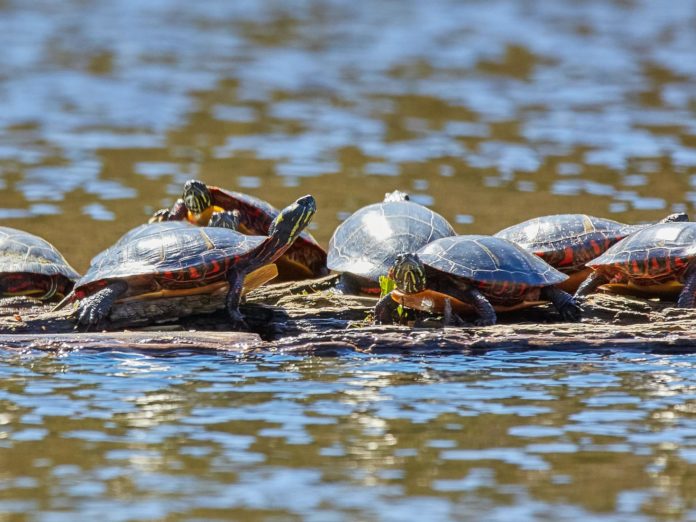Jonathan the Seychelles giant tortoise is the oldest living land animal at 190 years old. Why do reptiles and amphibians have such long lifespans? And can we learn from them to extend ours? A group of scientists led by Penn State and Northeastern Illinois University held “the most comprehensive study of aging and longevity to date.” The scientists look at the difference in senescence for reptiles and amphibians. Senescence is the process of deterioration with age.
The study found that “protective phenotypes, such as the hard shells of most turtle species, contribute to slower aging, and in some cases even ‘negligible aging’ — or lack of biological aging.” Negligible aging or negligible senescence means that “if an animal’s chance of dying in a year is 1% at age 10, if it is alive at 100 years, its chance of dying is still 1%… By contrast, in adult females in the U.S., the risk of dying in a year is about 1 in 2,500 at age 10, and 1 in 24 at age 80. When a species exhibits negligible senescence (deterioration), aging just doesn’t happen.” Anne Bronikowski, author and professor, explains that this study is impactful because “Understanding the comparative landscape of aging across animals can reveal flexible traits that may prove worthy targets for biomedical study related to human aging.”
https://www.psu.edu/news/research/story/secrets-reptile-and-amphibian-aging-revealed/

